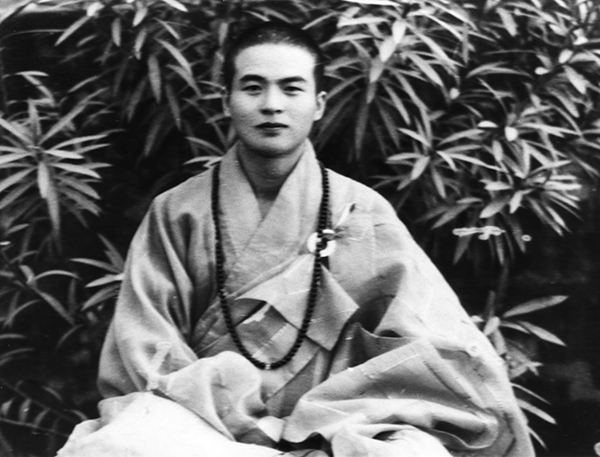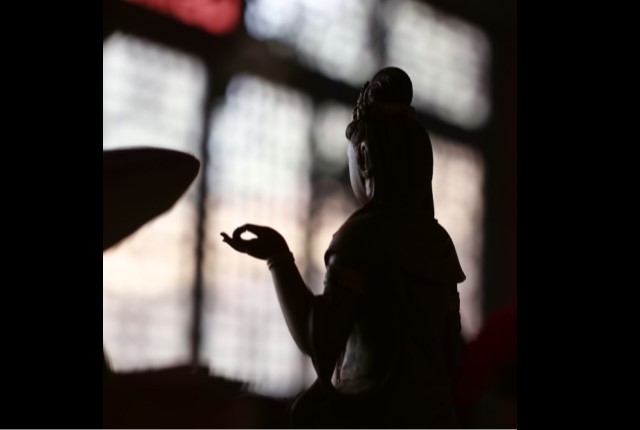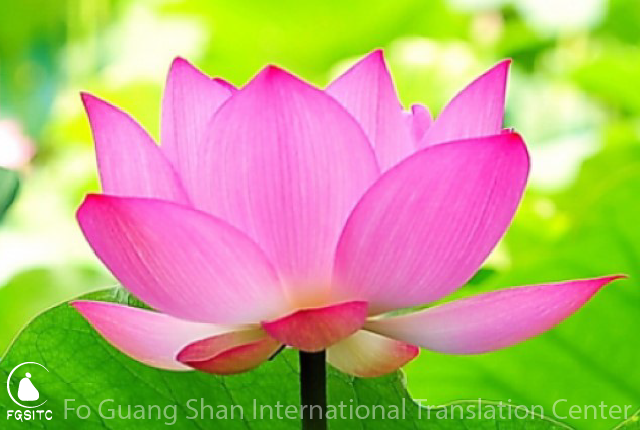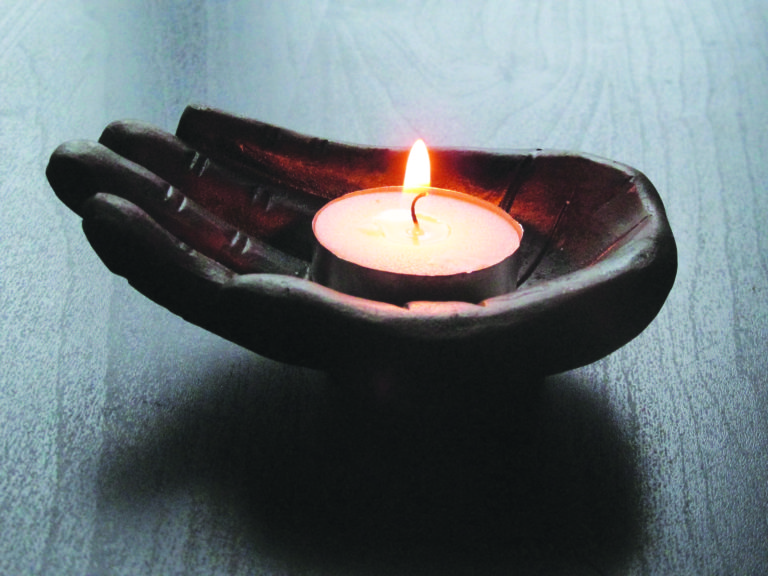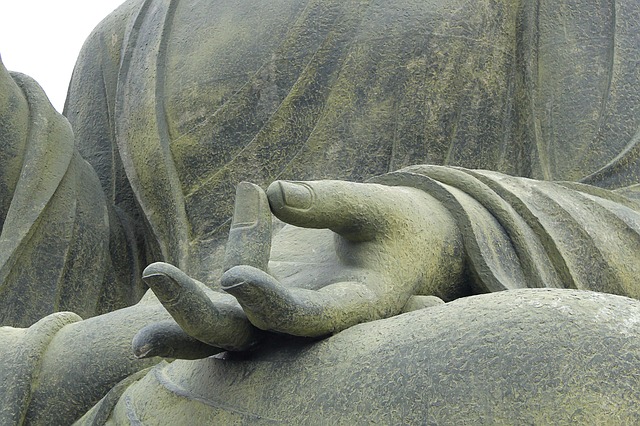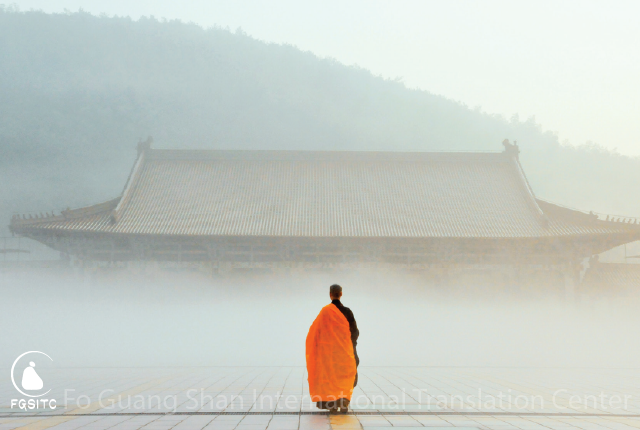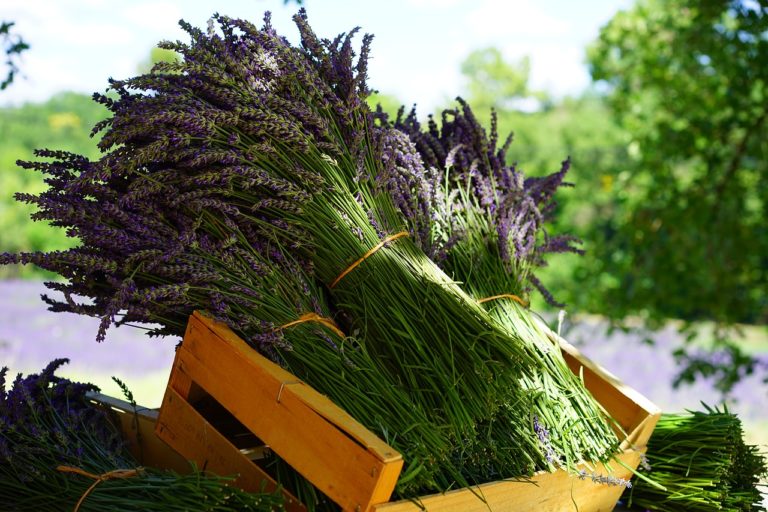
Technological progress and advances in modern science have led to material improvements that have enhanced the quality of people’s lives on many levels. Yet, no matter how much we have progressed or how advanced our technology is, there still remain fundamental problems in life that science will never be able to solve.
Two of the greatest problems people face are birth and death. No sooner are we born than we must begin to face the problems of sickness and aging, both of which are have always been intensively studied by medical and social researchers; Buddhism is also concerned with sickness, aging, and death. The Buddha was a great doctor and teacher of all humanity, the Dharma is like medicine that can cure both physical and mental problems, and monastics are like nurses that protect all sentient beings. Thus, the Triple Gem is often referred to metaphorically as the doctor, the medicine, and the caregivers. If we use Buddhism to solve the problems faced by us today, we will discover a prescription with great effectiveness.
People become Buddhists due to certain causes and conditions. The ancients used to say:
“A serious practitioner should have a few ailments, for these are what teach us to commit to the Way.“
Some people, after experiencing difficulties and setbacks in their lives, want to have something to rely on, so they become Buddhists. Other people become Buddhists because they hear some Buddhist teachings while they are deeply despondent or saddened and feel comforted by them, and this causes them to commit themselves to the Dharma. Some people are confused by life and hope to find answers in the practice of Buddhism. Still others become ill and discover that life truly is impermanent and filled with suffering and thus embrace the Dharma.
All of these examples show it is not necessarily a bad thing for someone to become physically ill. Sickness is one way for people to discover the Dharma, and sometimes, it is the only reason they become committed to Buddhism and overcome their fixations on worldly matters. Though physical ailments do have a negative impact on people’s lives, they also can bring positive effects to some lives.
Birth, sickness, old age, and death are processes we all must experience. Who among us has a physical body that arose out of the four elements and the five aggregates and will never become ill? The Supreme Dharani Sutra says: “Goiters, neurological diseases, excessive phlegm, diseases of the eyes, headaches, abdominal pains, hemorrhoids… skin funguses, or leprosy are rampant throughout the world and cause extreme suffering among sentient beings.”
It is especially important that we come to some realization of the deeper significance of life itself.
If we want to know how to heal our bodies and diseases such as these, we must first establish a correct perspective. We must understand how to prevent disease by distancing ourselves from it. If we become sick, we must learn how to befriend our illness.
Only by facing illness and death without any sense of attachment or clinging can we face sickness calmly and not let our minds be filled with denial, dread, and anxiety. A mind disturbed by these things only worsens physical conditions.
Buddhists believe that life itself never dies and that it is simply part of a cycle of birth and death, much like the seasons of the year. The truth is death is no different from moving from one home to another or changing clothes—it is nothing to be afraid of. Everything that is born must die and everything that dies is born again—there is nothing frightening about this. What is frightening is pain, for pain is difficult to endure.
Most of us must become ill before we can understand the suffering of having a body.
It is said that “the hero fears only the torment of illness,” for a serious disease can make even a brave man weak. When we are healthy, few of us appreciate how precious that state is, but once we become sick, we realize how truly difficult suffering can be. For certain germs or viruses, having to overcome an illness can in turn strengthen the immune system, so illness may actually be beneficial to our health in the long run.
Illness should not be looked on as something frightening; this will lessen the confusion being sick can create. Once, a group of monastics I was with went to visit someone who had tuberculosis. One person in our group was afraid that the patient’s illness would be contagious, but a member of the nursing staff said that it was good to be exposed to contagions every so often since exposure can strengthen the immune system. The nurse said that if you never exposed yourself to any germs at all, you would have a very weak immune system. An illness is much like a demon—the more you fear it, the more formidable it becomes and the more it can harm you.
Everyone should develop a good attitude towards their health and learn to be their own doctor. If we get sick, there is no need to panic. Of course, we need to find medical treatment for our illness, but it is most important to know how to best treat ourselves and be our own physician in this way.
If our minds are healthy and strong, we will be able to overcome any difficulty. If our willpower is strong, we will be able to overcome the suffering of any disease. If our minds are free of suffering, our bodies will likewise become free of pain. Then, what disease is there that can distress us? The secret of healing the body lies in practicing the threefold training—discipline, meditative concentration, and wisdom—and using these methods to erase all traces of greed, anger, and ignorance from our minds.
From Buddhism and Healing, written by Venerable Master Hsing Yun.
Image from Pixabay.


